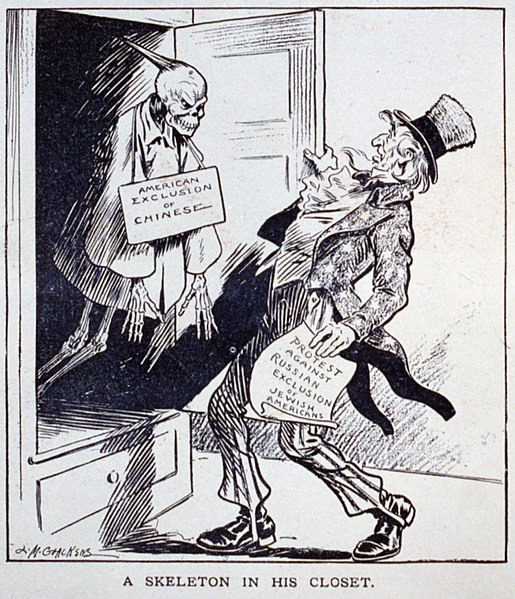Michael Clemens, about 70 minutes into a podcast interview says no. I’d have liked to hear more, but this was just a passing mention in a somewhat abstract conversation about Clemens’ paper Economics and Emigration: Trillion-Dollar Bills on the Sidewalk? which I wrote about last year (and similarly used a pull quote headline). I recommend the podcast and paper.

I suspect that most people, if they are aware of the Chinese Exclusion Act (1882) at all, might consider it with some combination of shame, historical distance, and ignorance.
The Act’s precise method (explicitly race-based exclusion) may seem anachronistic (the distant view), its shameful rationale and effects are the same as the slightly less bald, but much more extensive contemporary international apartheid regime.
Neither the Act nor contemporary restrictions are only to be mourned for their shameful anti-humanitarian effects and their suppression of huge amounts of measured economic activity, but for their making of a qualitatively less interesting world. The U.S. Chinese population was essentially frozen between 1880 and 1940 and most Chinese neighborhoods in the western part of the country, of which there were many, disappeared. I speculate that the western US in particular would have had a much more rich history and contemporary institutions, and the US and China a much richer relationship, than we have now, had the interregnum created by the Act had not occurred.
…
I recently noticed a group blog called Open Borders. I’d like to read all their posts and write a summary review, but please beat me to it.
[…] read and review the rest of Curtotti’s papers, and everything on abolishforeignness.org. As noted a few months ago, I also want to read and review all of openborders.info. It appears these two group sites come from […]
[…] example: Abolish Foreignness, Do we have any scrap of evidence that [the Chinese Exclusion Act] made us better off?, and Opposing “illegal†immigration is xenophobic, or more bluntly, advocating for apartheid […]